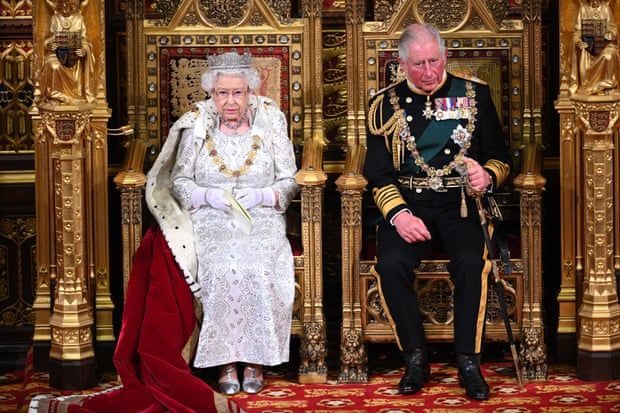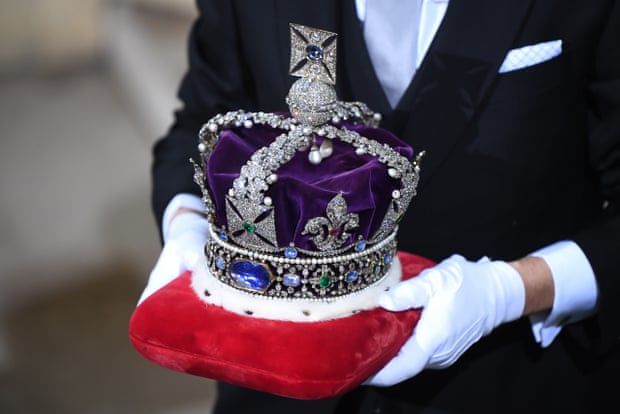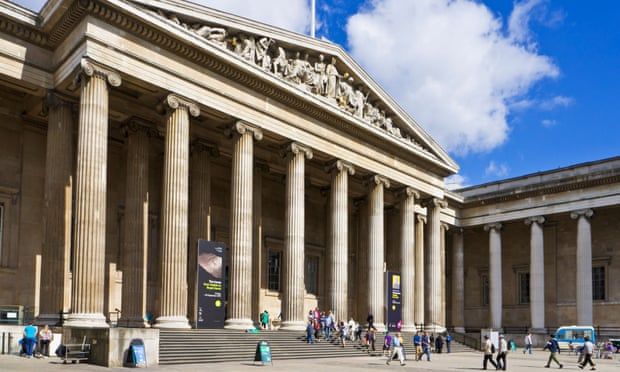
Royals vetted more than 1,000 laws via Queen’s consent
More than 1,000 laws have been vetted by the Queen or Prince Charles through a secretive procedure before they were approved by the UK’s elected members of parliament, the Guardian has established.
The huge number of laws subject to royal vetting cover matters ranging from justice, social security, pensions, race relations and food policy through to obscure rules on car parking charges and hovercraft.
They included draft laws that affected the Queen’s personal property such as her private estates in Balmoral and Sandringham, and potentially anything deemed to affect her personally.
The Guardian has compiled a database of at least 1,062 parliamentary bills that have been subjected to Queen’s consent, stretching from the beginning of Elizabeth II’s reign through to the present day.
The database illustrates that the opaque procedure of Queen’s consent has been exercised far more extensively than was previously believed.
Parliamentary bills subjected to Queen's consent and prince's consent
Under the procedure, government ministers privately notify the Queen of clauses in draft parliamentary bills and ask for her consent to debate them.
As part of a series investigating the use of the consent procedure, the Guardian has published documents from the National Archives that reveal the Queen has on occasions used the procedure to privately lobby the government.
The investigation uncovered evidence suggesting that she used the procedure to persuade government ministers to change a 1970s transparency law in order to conceal her private wealth from the public.
The documents also show that on other occasions the monarch’s advisers demanded exclusions from proposed laws relating to road safety and land policy that appeared to affect her estates, and pressed for government policy on historic sites to be altered.
 The Queen and Prince Charles both have the power to vet laws through the consent process.
The Queen and Prince Charles both have the power to vet laws through the consent process.
The database of 1,062 laws relates to legislation that the Queen vetted under consent rules, and it is not known on which occasions she also lobbied for changes to draft legislation. The Guardian has uncovered evidence of lobbying for changes to at least four draft laws, but it is possible she interfered with many more.
When asked by the Guardian, the Queen’s representatives refused to say how many times she had requested alterations to legislation since she came to the throne in 1952.
The royals describe the consent process as “a long-established convention that the Queen is asked by parliament to provide consent … for the debating of bills which would affect the prerogative or interests of the crown”.
The database compiled by the Guardian reveals the vast swathe of draft UK law that ministers have decided to send to the palace for consideration.
Some of the bills the Queen reviewed before they were passed by parliament relate to wealth or taxation. One of the richest families in Britain, with the monarch’s property investments exempt from inheritance tax and collections of fine art and jewellery built up over centuries, the Windsors are notoriously guarded about their finances.
 The Imperial State Crown.
The Imperial State Crown.
Members of the Windsor family can have their will sealed from the public, unlike any other family in Britain, ensuring an unmatched level of secrecy around their private wealth. No confirmed figure of the Windsor family’s wealth exists, though estimates have placed it at hundreds of millions of pounds.
In 2014, for example, the Queen and the heir to the throne screened the inheritance and trustees’ powers bill. Two years earlier she vetted the trusts (capital and income) bill. Trusts are legal arrangements often used by wealthy families to protect their assets from both tax and public scrutiny.
She has also screened bills covering whole swathes of government policymaking. At least 11 bills governing the railways have been vetted by the Queen, sometimes relating to the land owned by the royal estates.
In 2013 the Queen gave her consent to the parliamentary bill to build the High Speed 2 rail line between London and Birmingham. Transport ministers had notified the palace that the bill affected the “interests of the crown” as the department needed to acquire 21 plots of land owned by the crown estate during the construction of the line.
At least 10 bills relating to housing policy have been subject to Queen’s consent, as have five relating to laws on pensions, seven relating to the NHS and at least two concerning animal welfare. The government gave the Queen an exemption in a 2006 act to prevent the mistreatment of animals, stopping inspectors from entering her private estates.
Some of the bills subjected to Queen’s consent are remarkably obscure and ostensibly have little relevance to the monarchy, raising questions about why the Windsors were asked to vet the bills. They include a 1963 bill relating to the British Museum, a 1986 bill on salmon, and the 2019 parking (code of practice) bill to regulate the behaviour of private car-clamping firms.
 A 1963 bill relating to the British Museum required Queen’s consent.
A 1963 bill relating to the British Museum required Queen’s consent.
Dr Adam Tucker, a specialist in constitutional law at Liverpool University, said the breadth of laws made to undergo the Queen’s consent procedure was startling.
“A lot of these bills are not distinctively about the crown, or mainly about the crown, or obviously about the crown in any way,” he said. “And yet they obviously still have some content which drags them into the process.
“Seeing the sheer range, in this relentless list form, really drives home the sheer breadth of things that the procedure captures.”
In other instances, a connection to the crown’s financial interests is plain, such as a 1988 bill affecting the duchy of Lancaster, the private estate that gives the Queen a multimillion-pound income.
Buckingham Palace confirmed that the mechanism encompassed draft laws that affect the Queen’s private interests, such as her private estates, as well as anything that affects the Queen personally, whether as an individual or as a land owner or employer.
 Queen Elizabeth’s Sandringham estate.
Queen Elizabeth’s Sandringham estate.
A spokesperson for the Queen said: “Whether Queen’s consent is required is decided by parliament, independently from the royal household, in matters that would affect crown interests, including personal property and personal interests of the monarch.
“If consent is required, draft legislation is, by convention, put to the sovereign to grant solely on advice of ministers and as a matter of public record.”
She added: “Queen’s consent is a parliamentary process, with the role of sovereign purely formal. Consent is always granted by the monarch where requested by government. Any assertion that the sovereign has blocked legislation is simply incorrect.”
The Cabinet Office said: “Queen’s consent is a longstanding convention and a requirement of the parliamentary process. Consent is routinely sought by the government and agreed by the monarch as a matter of course.”
A little-questioned rule
Many of the laws appear to relate to matters of the royal prerogative, the powers of state that are formally vested in the monarch but are exercised by the government.
The fact that the consent procedure takes place is briefly noted in the parliamentary record. In the Commons, a minister nods when asked by the Speaker, while in the Lords a minister will read a rote passage of text.
Politicians infrequently question the procedure. One of the rare occasions was in 2015 when the Labour peer Lord Berkeley asked why the Queen’s consent was required for the enterprise bill after the rote passage had been read out.
Lord Taylor, the then government chief whip in the Lords, replied that it was “a courtesy which Her Majesty extends to the house before we consider the third reading of a bill. It is not normal to discuss in detail what the interests are.”










